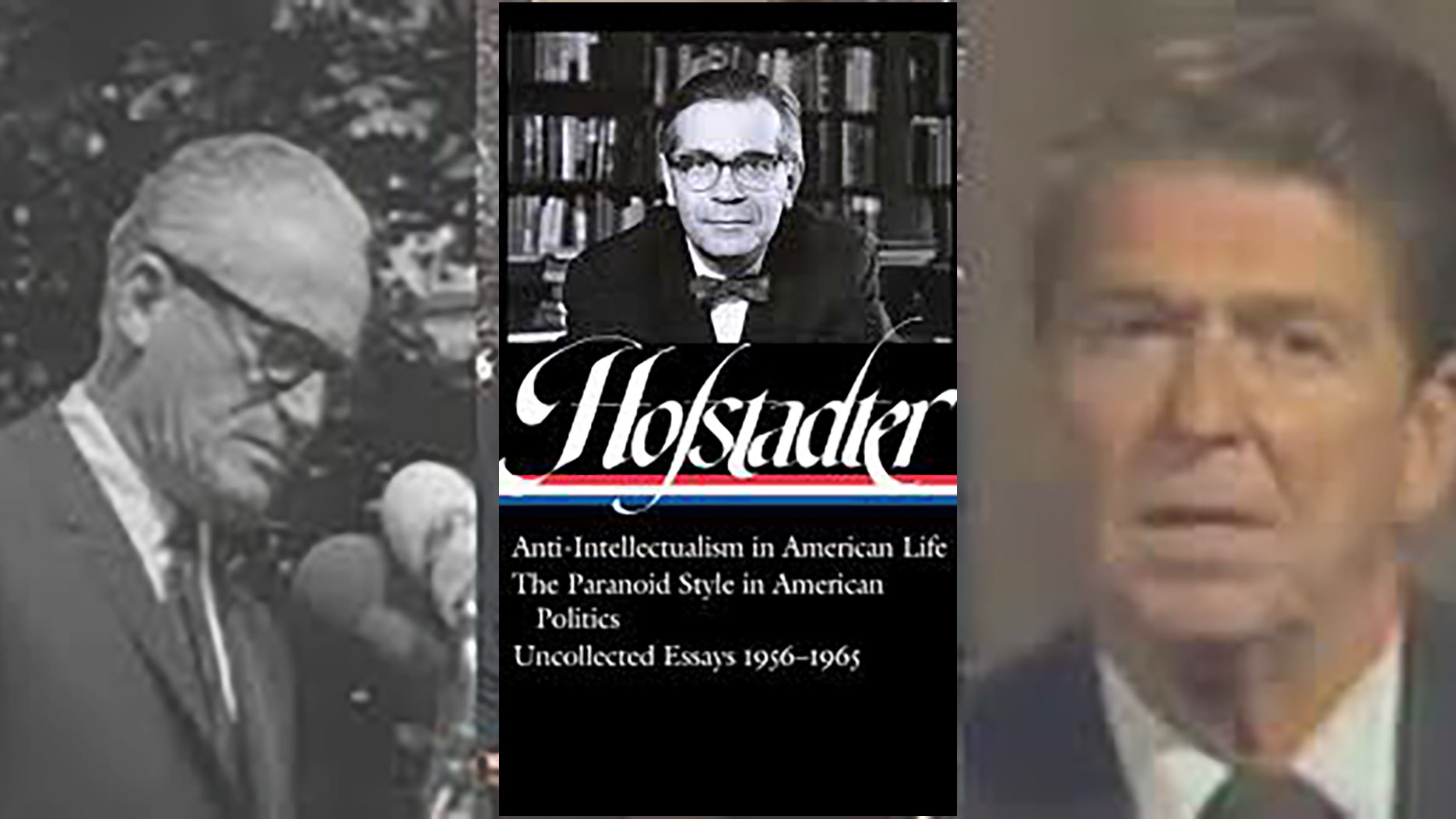Richard Hofstadter: Anti-Intellectualism in American Life, The Paranoid Style in American Politics, Uncollected Essays 1956-1965, edited by Sean Wilentz, Library of America, $32
For much of the late 20th century, Richard Hofstadter’s Anti-Intellectualism in American Life (1963) and The Paranoid Style in American Politics (1965) were the first works of scholarship to blow many a budding history major’s mind. Those iconoclastic books helped explain to the smart set some of American political life’s more frustrating recurrent impulses. Democratizing education in thoroughly Protestant America had encouraged a strain of political interpretation that skewed conspiratorially. Unalloyed zeal in defense of the Republic predictably engendered serial panics picturing occult, powerful, and foreign nemeses canoodling with domestic elites. The conspiracist family tree branched into Know Nothingism, Populism, and McCarthyism. This timely collection presents Hofstadter to a new generation of readers at least conversant with the phrase “paranoid style” thanks to critiques of the Trump regime.
In fashioning Library of America’s anvil-sized bricolage, Princeton historian Sean Wilentz has corralled alongside the two pillars of Hofstadter’s reputation a herd of his essays, including several on 1964 Republican presidential nominee Barry Goldwater. Classifying the Goldwater moment, Linnaean-style, among the fauna of paranoid American politics while presenting Goldwater himself as a tragic, tribunitial figure a la William Jennings Bryan, Hofstadter, who died in 1970, could not have seen that Goldwater’s wave would amount to anything more than another high anxiety-driven conservative tide. Instead, Goldwater begat what Wilentz labeled the “Age of Reagan” in his excellent 2008 book by that title. Scholars have challenged Hofstadter’s caustic take on the Populists and kindred movements, which he painted as a repackaged anti-bank crusade steeped in anti-Semitism. Debunking the debunkers, subsequent historians have hailed late the 19th century Populists as a true alliance of agrarians and laborers enunciating an inclusive vision of economic citizenship. Even given these reasonable challenges, Hofstadter’s oeuvre, arrayed in this brick of a book, remains an acute lens through which to view any all-encompassing political and social narrative.
This post contains affiliate links. If you buy something through our site, we might earn a commission. Thanks!





